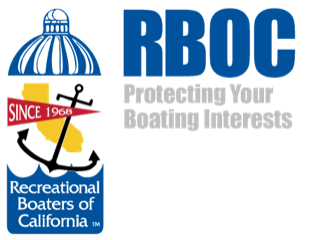RBOC and our national advocacy partner BoatU.S. continue to advocate in support of amendments to SB 561 [Blakespear], legislation that would establish an extended producer responsibility [EPR] requirement for pyrotechnic marine flares, to enact an effective and efficient requirement for the single manufacturer of marine flares to collect and dispose of the products that it manufactures.
RBOC and BoatU.S. will support the measure with these amendments [disccussed below] and will oppose the measure if the amendments are not made.
Recreational boaters care both about responsible environmental stewardship of the waterways, as well as boater safety on the water. We look forward to the development of more feasible paths for replacement of chemical flares and being able to support a future version of this initiative.
RBOC and BoatU.S. note the good-faith engagement that have been made by Senator Blakespear, her office, Orion Safety Products, National Stewardship Council, Zero Waste Sonoma and other stakeholders during 2024 to understand the objectives of SB 1066, its implementation, impacts and costs. However,... with widely varying estimates of disposal cost and impact, no clarity about substitute safety measures, or the disposition of similar but much larger commercial flares, and no phase-in period or plan for support ... RBOC and BoatU.S. were not able to support SB 1066 as it was presented to the Governor for his consideration. The organization did not, however, request the Governor’s veto of the measure.
Our organizations remain informed by the recreational boating community’s experiences with state and local efforts to facilitate and encourage boaters to voluntarily turn in their marine flares through the past several years, especially thought the California Boating Clean and Green Campaign.
Boaters place a high priority on the importance of marine flares as a mandatory and essential public safety feature. Visual distress signals are an essential part of the safety equipment of a recreational vessel and are required by federal regulations. Alternatives to pyrotechnic flares including electronic beacons are not as effective, especially during daytime hours.
The legislation to-date has focused on a statewide EPR program as the solution to end-of-life management of marine flares to address the toxic metals and potential pollutants. Effective and affordable alternatives to a full-blown extended producer responsibility requirement can address the specific nature of marine flares, their components, and their ultimate disposal or destruction.
So far as we are aware, Orion is the sole producer of pyrotechnic flares for recreational boaters. The absence of a robust, competitive business environment is likely to lead to the new state and industry costs imposed by an EPR requirement being passed on to and borne by the recreational boaters. A significant cost impact on individual boaters could become a disincentive to purchases.
As SB 561 advances to the Assembly Committee on Environmental Safety and Toxic Materials for consideration, RBOC and BoatU.S. have developed and have submitted amendments to the author that would tailor the mandate to the specific situation in California and resolve our concerns.
The amendments would require that the manufacturer collect and dispose of the flares it manufactures. At the same time, the amendments would delete the requirements that:
• The state Department of Toxic Substances Control [DTSC] adopt regulations.
• The manufacturer submit its manufacturer responsibility plan for DTSC consideration, with DTSC then considering and approving the plan.
• A manufacturer responsibility organization be established for multiple manufacturers.
The amendments would also move up the deadline for the manufacturer to create and submit its plan to DTSC by one year, to January 1, 2027.
This program would resolve the critical issues that RBOC, BoatU.S. and others have identified and communicated while last year’s SB 1066 progressed through the legislative process and as SB 561 has been considered this year.






